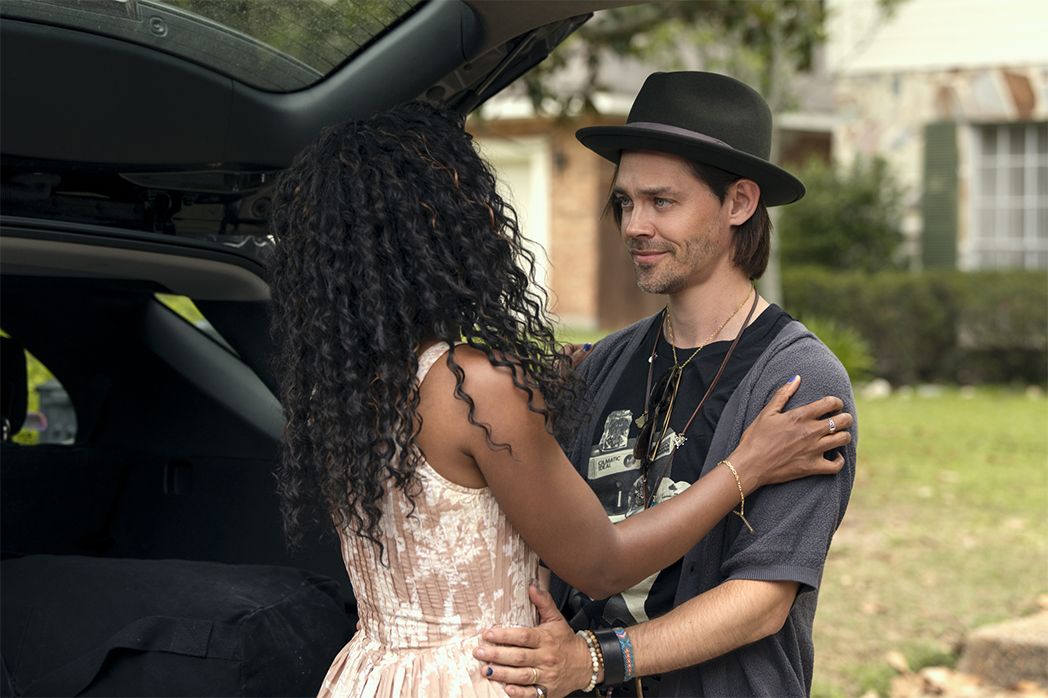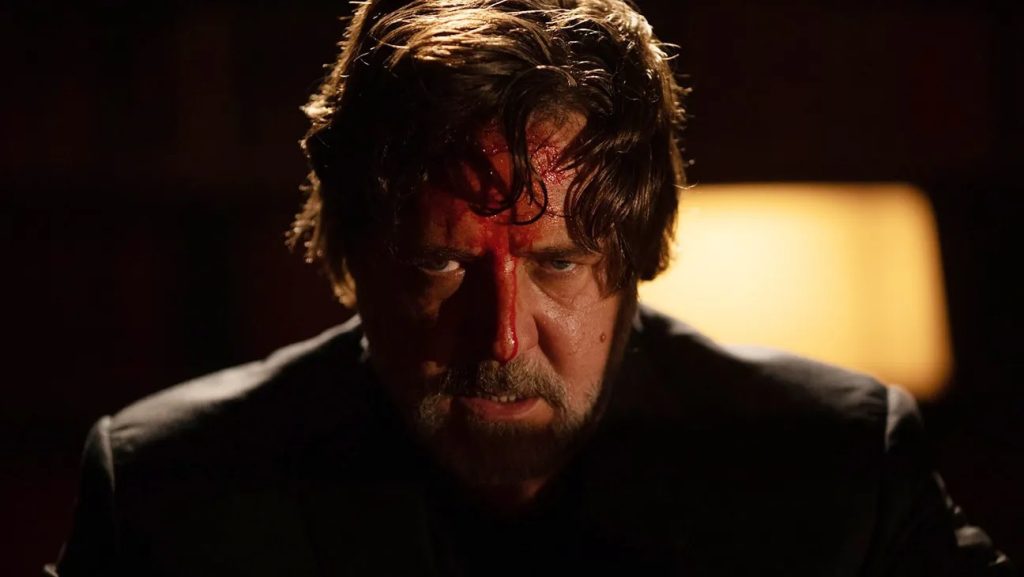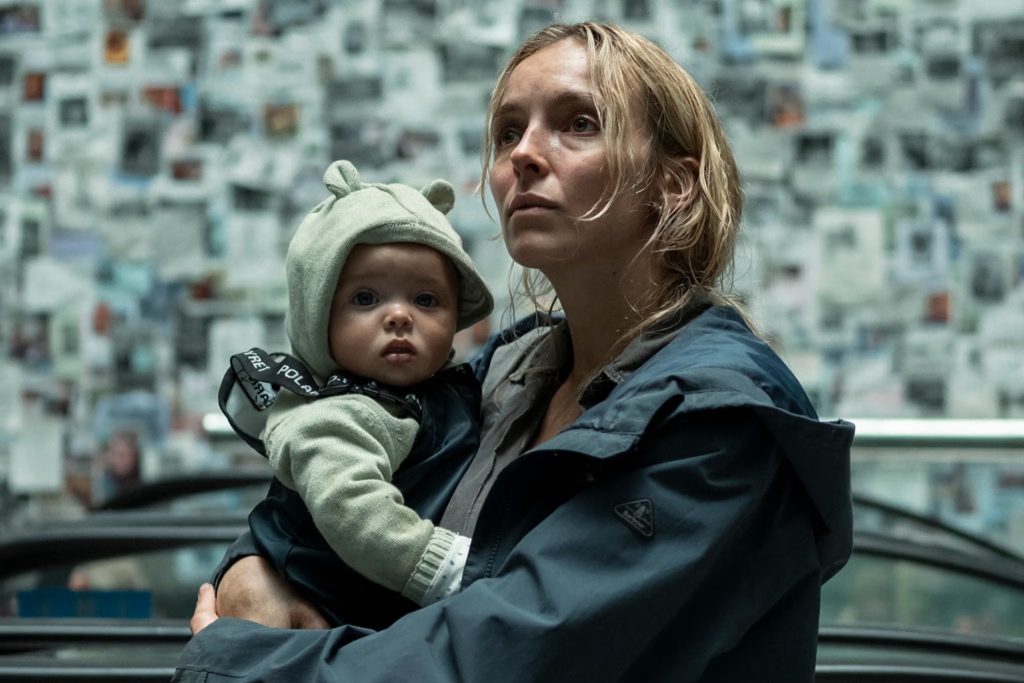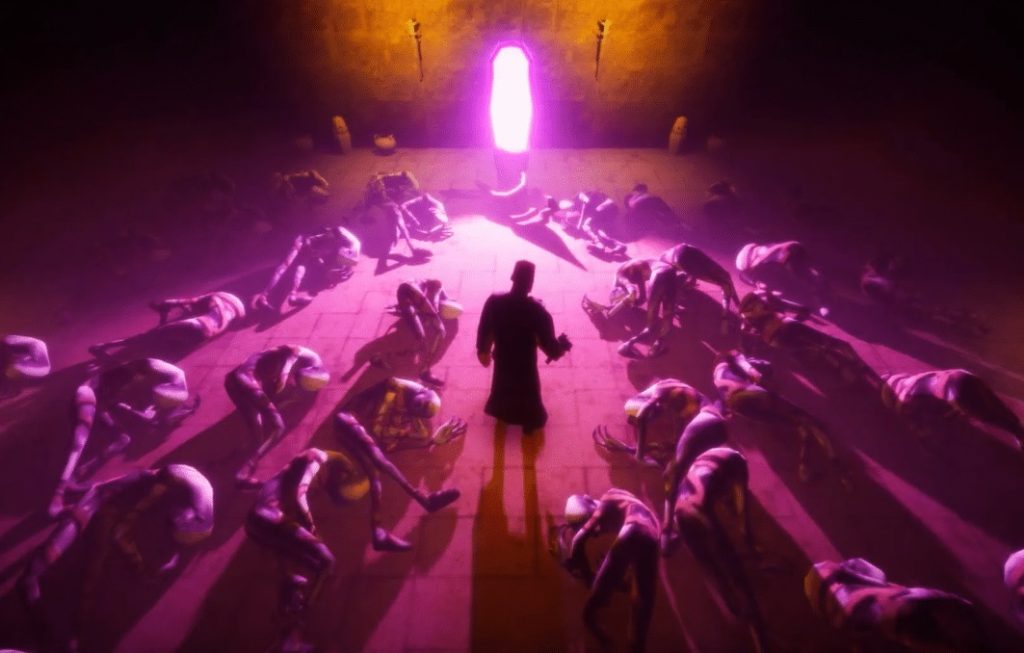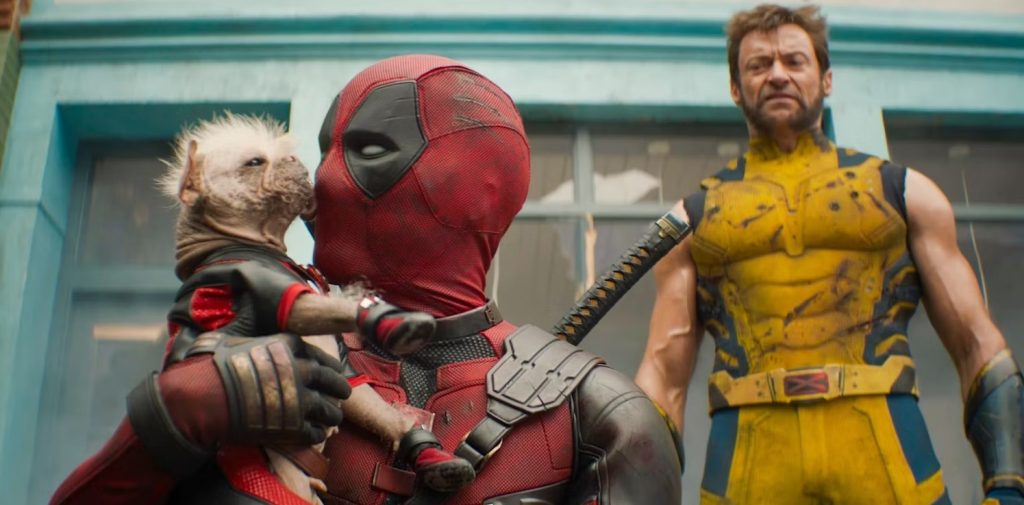In new film Imaginary, Jessica and her family return to her childhood home, but events escalate quickly when a mysteriously disjointed bear called Chauncey latches on to the mind of her daughter Alice. Maintaining a sense of stability in the movie is partner and father, Max, played by Tom Payne. STARBURST caught up with Tom to discuss what it was like to play a parent on screen for the first time, practical effects, and the terrifying possibilities of imagination…
STARBURST: What do you remember the most from reading the script for the first time? What stood out to you?
Tom Payne: There’s a moment in the script, and in the film, about two-thirds in that made me audibly gasp. Which I don’t remember ever happening, reading a script. Sometimes I’ve been like “Oh, that’s cool! Or, oh, that’s exciting!” But, literally, when it came to reading this script, there was a moment where I gasped. Which is awesome. That’s when I’m like, “Oh, this is cool! If it made that happen to me, while reading it, then it should translate really well on-screen.” That made me excited to be a part of the movie. Then, lots of things on top of that, I wanted to work with Blumhouse for a while, I was very excited to get into business with them. Then DeWanda Wise was the lead, and I think she’s awesome. I was very excited to work with her. And, to be a dad on-screen! I hadn’t done that before, so I had to jump into that side of my career, and this was a great way to do it.
As a parent yourself, did that add any kind of perspective to the process?
Yeah, I would say that it actually worked the other way around. When I shot the movie, he was eighteen months old, and his kind of imaginary world hadn’t quite established itself yet. But now he’s two, I can definitely see his imagination running wild. When you tell him a story, you can tell that he is there, in the story. He is not just thinking about it, he gets this faraway look in his eyes, and he’s absolutely in the story that you’re telling. Which is so cool, but it shows you how strong a child’s imagination is, and how present they are in that. This movie is called Imaginary, and it’s all about that. The imaginary world of a child and how strong that can be.
Max provides a level of comfort and safety for the other characters, can you elaborate on that, and maybe what you wanted to see from Max?
Yeah, I think Max is the most stable character in the movie. For all of the other characters to kind of, pivot around. I talked to Jeff [Wadlow, director] about that at the beginning when I joined, I was like “OK, fundamentally, what is his function in the movie? What role does he serve?” And it’s that solid stability for his daughters. He broke up with his ex-wife to protect them, and move away and do the best for everyone involved. Then, he found a partner in Jessica who he fell in love with, and he thinks is also a good step Mum for his daughters. They move into the home, and start a new life. He is making decisions always based around what’s best for his family. Then, Jessica and he obviously have a great relationship, and she’s like “You should go and do this for yourself” he says “I can stay, I don’t have to go” and she pushes him to go. Then, when he leaves, everything takes a turn, and I hope that the audience is like “No, Max come back!” as much as the characters are, it’s just nice to be that source of stability in the picture.
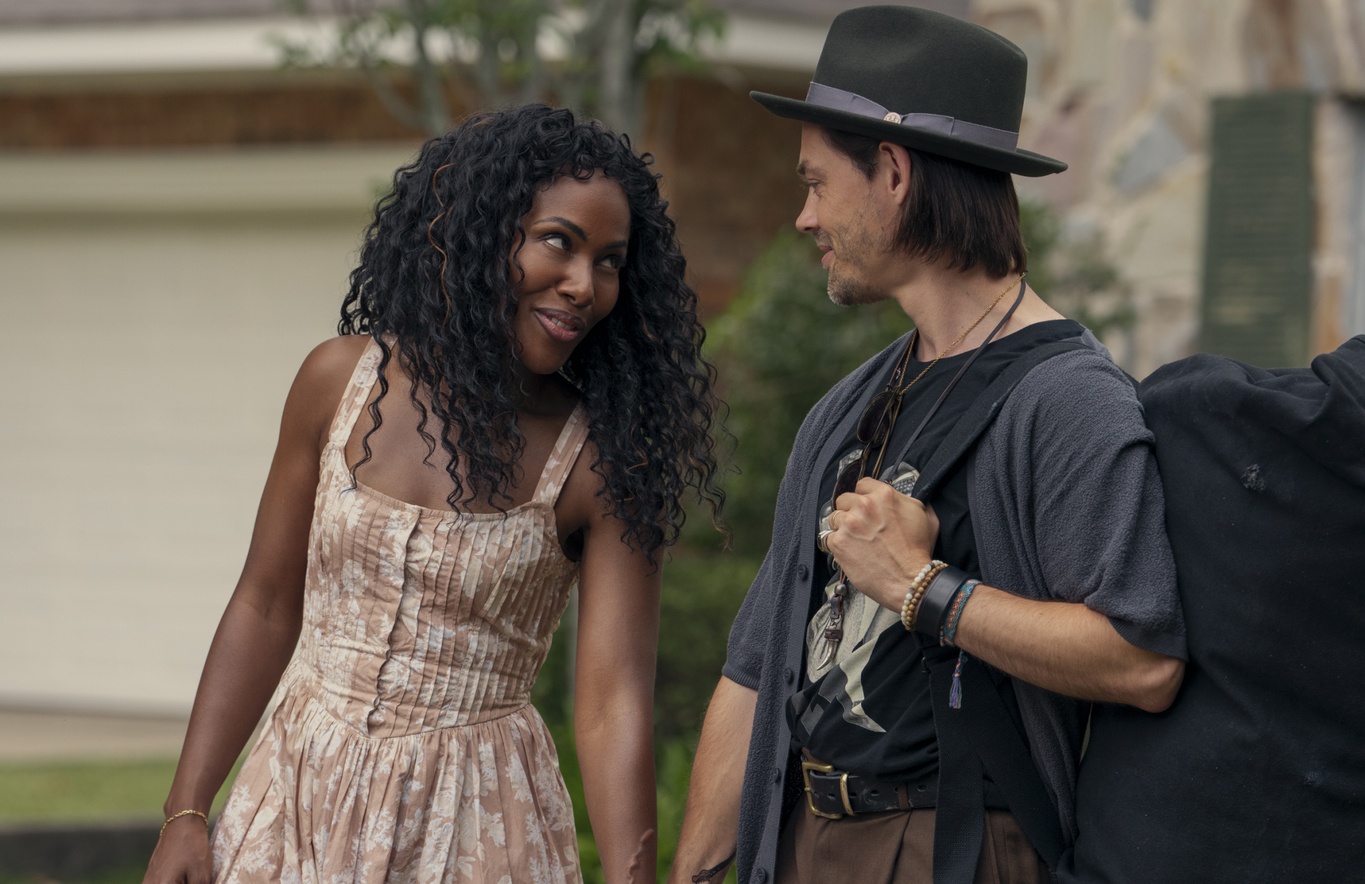
Everyone is dealing with a tough backstory. Can you tell us about what that family dynamic was like to work on, and build upon as a whole with your cast?
It was wonderful. I have a teenage daughter in the movie, which is a big step for me, because I had never played a dad on screen before, and suddenly I have like a grown up daughter, and a slightly younger one. I had experience in my life, of being in a relationship that I probably shouldn’t have been in for as long as I was. I was able to easily step into what it would be for Max in the story. But I didn’t have children with my previous partner. So, in this situation he had had children, and then another child maybe, thinking, “Oh this’ll make things better!” Then I’m sure they all as a family went through this crushing realisation that it’s not going to get any better. You have to make that really tough decision. Even tougher than I had to make in my life. Max has two kids, but this is still the best thing for them, and for their mother. To separate. So yeah, that is a tough backstory for them. Pyper’s character Alice has a scar on her arm, which is obviously reminiscent of a difficult history. Yeah, everyone is carrying their own personal issues in the film.
What was Jeff Wadlow like to work with, and what did he bring to the creative process for yourself?
On set, Jeff is very egalitarian and ‘best idea wins’, and even though he wrote and directed it, he is very much “Okay! How can we make this better? What do you think? Let’s try and make the best film we can!” Which is great. I don’t particularly want to work with anyone who is very dictatorial, “do what I say, or get out” kind of thing. First of all, I don’t think that that atmosphere should exist on set. In this movie, Jeff and DeWanda are also both incredibly collaborative, and it’s “let’s work together to make this the best product that we can” and that’s just a very nice atmosphere to have on set. It makes everyone feel very empowered, and excited to do that.
Jeff confirmed that practical effects were really important for Imaginary. As an actor, what did you see from the practical effects within Imaginary, and how fun were they for you to work on?
I grew up in the ‘80s and ‘90s watching a lot of movies with a lot of practical effects. In the modern day there’s a lot more CGI, and as much as we have strong imaginations as actors, it still requires extra effort to imagine something in front of you and then react to it, so when you actually have the physical thing in front of you, it takes away a lot of that effort. All you have to do is just react, which is amazing. We had such a great team on this movie making these wonderful effects. I was so excited about that! Like “Wow, these are actual things in front of us that we can react to.” It helps the actors, but it also translates to the audience as well, because you can tell. There is an artistry to it. Not that there isn’t an artistry to CGI, but when you’re seeing it in front of you, and you know that someone has made it with their hands. Like, if you watch a Guillermo del Toro movie, it has a very different feel to something where the monsters are CGI, and it just makes it more grounded, and rooted in something real. Which makes it scarier, I think.
Finally, what do you remember the most from seeing Chauncey for the first time?
There are a few different types of Chauncey. I think I saw all of them, we were just very excited. When Chauncey first came to set in his special case, we were all just really excited to meet him. It’s so funny when you think about what happens in the movie. Like I said, to work with something practical like that, it’s so useful, and creepy. You’re actually like “Oh that’s creepy that he can do those things” and he can actually do them. It’s not like stop-motion, like, someone is coming in and moving him. He is moving. And that’s just amazing. It just adds something to the movie.
IMAGINARY is in cinemas now. You can read our review here.

